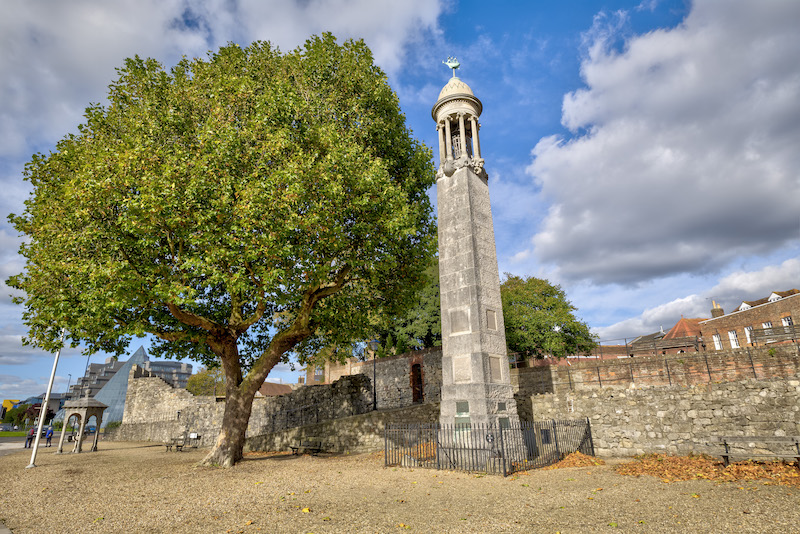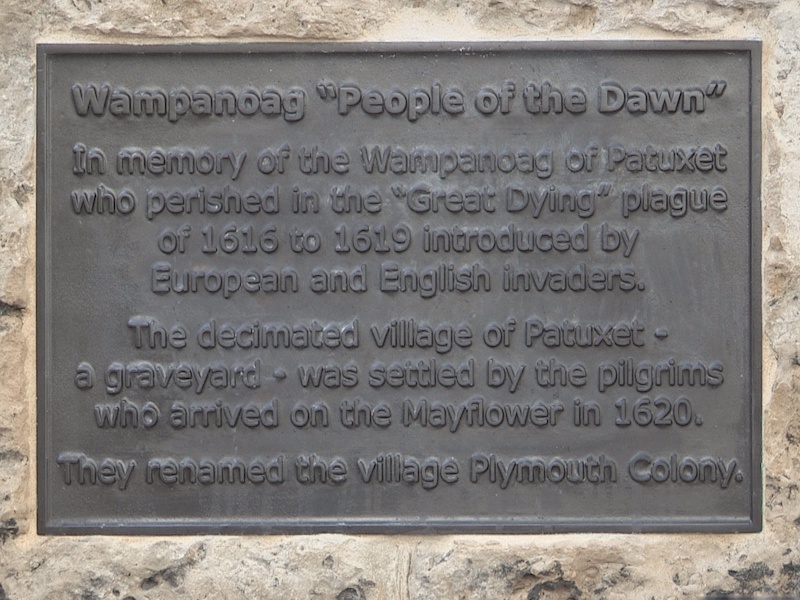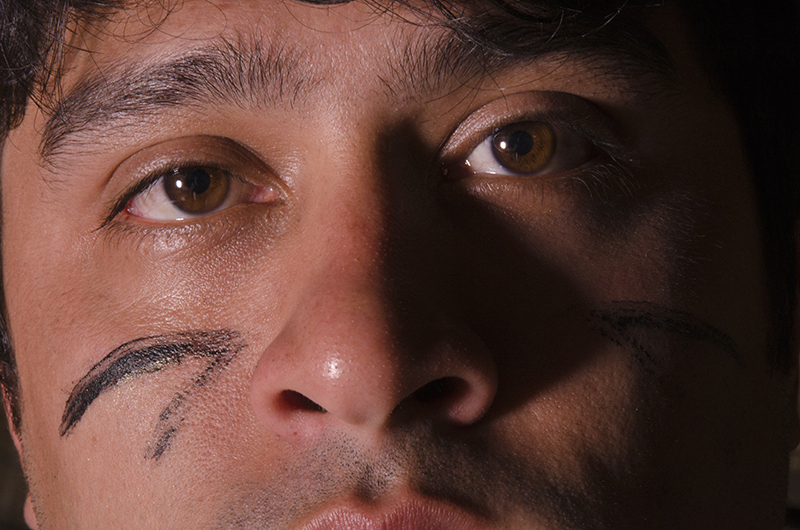

- Contact Us
- Search
-
Mayflower400 partner destinations:
Southampton honours original Patuxet inhabitants for Native American Heritage Month
Nov 09, 2020
On the 400th anniversary of the sailing of the Mayflower, The Right Worshipful Mayor of Southampton pledged that from now on, Southampton would always include the Wampanoag people in the telling of the Mayflower story.
As part of that commitment, a new plaque on the Mayflower Memorial remembers the original inhabitants of Patuxet, which became Plymouth Colony under the settlement of the ship’s passengers.
This plaque was announced as part of a programme of events aligned to Native American Heritage Month.
Also known as the Pilgrim Fathers' Memorial, it was built in 1913 to commemorate the departure of 'the little company of Pilgrim Fathers who were destined to be the founders of the New England States of America'.

Built of Portland stone, the memorial has eight plaques dedicated to the memory of pilgrims, passengers and crew.
They include plaques for the Hopkins family and Edward Doty, who were from Hampshire, and John Alden, who joined the crew at Southampton. These have recently been refurbished in an extensive renovation of the Memorial.
In 2020, organisers worked closely with the First Nations Wampanoag tribe - they have been a key factor in the approach to the Mayflower 400 and their contribution has widened the lens of local history.
The 'unveiling' was accompanied by a filmed prayer from a representative of the Wampanoag people, Steven Peters, which is available on the Southampton Mayflower 400 website here.

The new plaque reads:
Wampanoag "People of the Dawn"
In memory of the Wampanoag of Patuxet who perished in “the Great Dying” plague of 1616 to 1619 introduced by European and English invaders. The decimated village of Patuxet - a graveyard - was settled by the pilgrims who arrived on the Mayflower in 1620. They renamed the village Plymouth Colony.
Steven Peters said: "So often that part of history, what happened to our ancestors in the village of Patuxet, has been silent. That’s a really sad moment for us.
"It’s a hard part of the story to tell, but as we think about that, there’s respect that needs to paid to these people."

Paula Peters, Wampanoag scholar and co-creator of the resources, said: “It has been such a pleasure to work with the Southampton City Council team, knowing how genuinely they seek to know and teach the whole story of colonisation.
"The Wampanoag story has been marginalised for centuries, yet the story of the Mayflower is one that cannot be completely understood without the inclusion of the Wampanoag perspective.
"These are the stories that inform our humanity. If we are ever to advance in a worldly way, we have to take a critical look at the past and map our futures so that we do not make the same mistakes."
The Right Worshipful the Mayor of Southampton, Cllr Sue Blatchford made the following pledge: "We have learnt much from working with representatives of the Wampanoag tribe and are enriched by the experience.
"We commit to ensuring all our schoolchildren learn their story. From now on, the story of the Mayflower will be told in this city not just from the perspective of those waving the ship off, but also from those witnessing its arrival from (what is now) the Massachusetts shore."
Sign up for the latest Mayflower 400 news
You'll be the first to hear the latest Mayflower news, events, and more.
Log In
Register
Mayflower 400 Proudly Supported by our National Sponsors and Funding Partners






